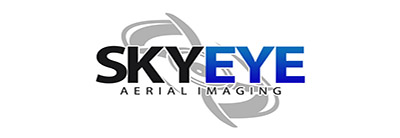The use of UAS to conduct domestic surveillance in the United States has become a major issue for a number of concerned citizens. With the incredible expansion of UAS operations that is predicted in the near future, the right to privacy that is currently enjoyed by all will potentially be threatened. The fourth amendment to the Constitution’s guarantee against “unreasonable search and seizure” is often cited in legislation that is being drafted to curtail the operation of UAS by government agencies in the United States. Also, the ability of private citizens or organizations to operate sophisticated surveillance equipment with very little cost has some people so concerned that many support banning UAS completely from American skies. In order to explore these issues, answer at least two of the following questions:
How can these concerns be addressed while at the same time allow industry to maximize the benefits of commercial and government UAS domestic operations?
The only way, in my observation, is to allow the FAA to continue to plan for the integration of the NAS. The only way industry is going to grow, and for technology to improve, is to continue to allow and foster an environment where technological growth and advancement is encouraged (IbisWorld, 2015). Privacy is always going to be a concern, however, in a commercially viable airspace rule and regulations should be placed on what the systems can and cannot do. No matter the limits I think it is inevitable, no matter the rules and regulations in place, there will privacy complaints as long as people see UAS. This is not just limited to the DJI Phantom’s flying around but also larger systems capable of higher altitude flight. Another large obstacle to overcome is the terminology that has made it’s way into our everyday lexicon. Drone. The fact of is we do not operate fully autonomous systems that go from point A to point B. Just yesterday I attended a pop-up safety brief. Part of this brief was focused on how to change the people’s views about unmanned aircraft by not using the term ‘drone’. They are in fact aircraft that are remotely piloted. As long as we use this term it will conjure up images of the terminator, autonomous computer controlled flying killing machines from the same series of movies which will have a lasting effect on the public image of such systems.
How can citizens be assured that their fourth amendment rights are not being violated by the use of UAS in government operations?
The only way this can be assured is to have limited government utilization of such systems. If such systems are allowed then it should be public knowledge who and what agency is allowed to operate such systems and for what purpose. Furthermore, the agency should publish its usage policy for all to see and suggest that citizens concerned about their privacy should call a specific number. Basically this is happening now without the specific regulations. The FAA requires all entities to apply for and hold an exemption from certain parts of the federal aviation regulations (FAA, 2016). As a result, the applications and approvals are listed on the website with the exact terminology of what they’re allowed and not allowed to do. People should become familiar with these types of documents if they are concerned for their privacy because an informed person is an educated person and one that will not make decisions based on misinformation.
References
Federal Aviation Administration. (2016). Unmanned aircraft systems. Retrieved from https://www.faa.gov/uas/faq/
Ibis World. (2015). Drone industry hinges on defense spending and regulations. Retrieved from http://media.ibisworld.com/2015/01/29/droneindustry/
